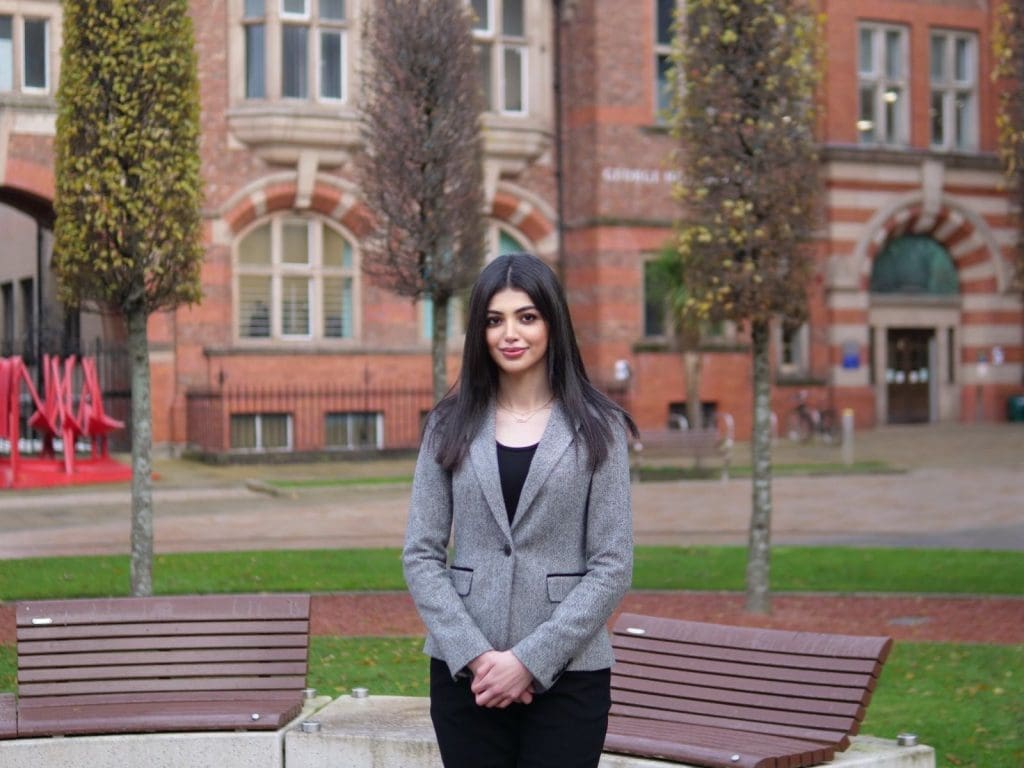Flood Technology Group is working in conjunction with the University of Liverpool on an exciting new project that bridges academic research and real world innovation in a bid to offer a scalable solution to global environmental hazards, such as flooding, hurricanes and earthquakes.
Civil engineer Danah Albuhairi successfully applied for a new PhD post at the University, which has been funded by the Engineering and Physical Sciences Research Council’s (EPSRC) Centre for Doctoral Training in Net Zero Maritime Energy Solutions (N0MES), in partnership with Yorkshire-based Flood Technology Group. Danah, who grew up in Kuwait, earned a scholarship from Kuwait’s Ministry of Higher Education to complete a bachelor’s degree in Civil Engineering at Coventry University and a master’s degree in Sustainable Civil and Structural Engineering at the University of Liverpool. Since graduating, she has published several journal papers while conducting research at Liverpool University, as well as gaining practical, professional experience by completing internships at Building Design Partnership in Manchester and SLB in Kuwait.
Danah recently met with members of the Flood Technology Group team for the first time as she prepared to embark on work to further develop research into its ground-breaking Flood Adaptive Platform technology. The project will build upon the cutting edge work already carried out by Flood Technology Group, in partnership with the University of Liverpool, to develop its innovative Flood Adaptive Platform, a mechanical jack system capable of detecting and reacting to flood conditions by automatically elevating above rising floodwater. It will explore how this type of technology could be applied in a host of different ways to protect property and infrastructure across a range of different sectors, as well as testing its ability to cope with a variety of global environmental hazards, ranging from flooding to hurricanes and earthquakes.
Danah explained: “I grew up in Kuwait, a coastal country with critical infrastructure vulnerable to climate-related risks. This latest research focuses on resilient modular steel platforms designed to withstand natural hazards like flooding and landslides, addressing risks associated with natural hazard-triggered technological disasters.”
She continued: “In a rapidly changing world, adaptive infrastructure is no longer optional; it’s the future. Flood risks are already tightening inhabitable spaces, as seen in flood-restricted zones across the UK. Without resilient solutions, critical coastal industries, such as Kuwait’s petrochemical plants, face increasing threats that jeopardise global trade and economic stability.
“At the same time, regions vulnerable to natural hazards are left dependent on external aid. By advancing flood adaptive technologies, this research will help to secure vital industries, reclaim liveable spaces and empower developing regions, all while aligning with the United Nations’ Sustainable Development Goals (SDGs).
“I’m driven daily by the potential of this work to address these interconnected challenges and contribute to a more resilient, sustainable future.”
Simon Gilliland, Chief Executive of Flood Technology Group, said: “We’re delighted to be working with the University of Liverpool on this research project and to be able to welcome Danah to our wider team. It’s clear that she brings a wealth of knowledge and expertise in this field. This new research project will involve further in-depth analysis of our technology and test its efficacy against multiple natural hazards, including flood, wind, earthquakes and landslides.
“Our Flood Adaptive Platform has already been successfully applied to modular buildings and mobile homes, highlighting its ability to protect people and their property from the threat of flooding, but its potential is truly limitless. It can be used to protect a vast range of infrastructure across many different sectors, from utilities and energy to commercial and transportation.
“So far, we’ve only scratched the surface of the potential applications for our technology and this research project will enable us to discover its full potential. We’re proud to be at the forefront of developing cost-effective flood adaptive technology solutions to protect both new and existing structures and infrastructure from the increased flood risk that we face.”
